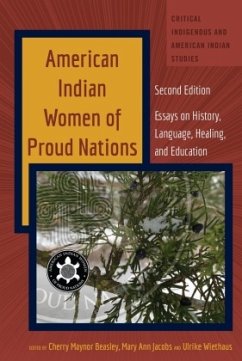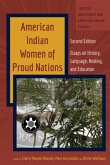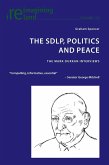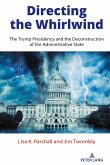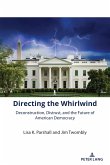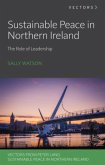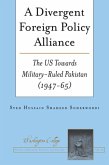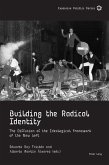At its onset, the American Indian Women of Proud Nations Organization set out to create a space that would uplift Native American women, children, and families because of their central roles in the continuation of Native communities. The contributors to the second edition continue to document and reflect on the organization's initiative and the efforts of Southeastern Native women and their allies to center women, children and families in protecting and strengthening kinship, land, and language as enduring aspects of Native American cultures. The second edition offers updated research on language revitalization, adolescents and their parental caregivers, Indigenous issues in higher education, and new work on matrilineality, the Missing and Murdered People crisis, and the continuation of healing traditions in a contemporary context.
For centuries, Indigenous women have displayed strong and steadfast resilience to Eurocentric and patriarchal violence. This resilience has been manifested when Indigenous mothers faced having their children's culture, and sometimes their lives, removed through the Federal government's Indian Board School policies, and the targeted violence imposed on women in Indigenous communities through the epidemic that has been called "Missing and Murdered Indigenous Women." Fortunately, these injustices are receiving increasing attention, thanks largely to the efforts of Interior Secretary Deb Haaland (Pueblo of Laguna), the first Indigenous Cabinet Secretary. The second edition volume of American Indian Women of Proud Nations. Essays on History, Language, Healing and Education brings together scholars from across the US to celebrate Indigenous women's resiliency. The collection is a welcome opportunity to let the thoughts and words of the authors breathe new life into Indigenous women's traditional education, health and wellness and nurturing. I invite you through this excellent work to journey through Indigenous history to appreciate the beautiful voices of contemporary Indigenous women as they stand strong with their elders and ancestors. Ronny A. Bell, PhD, MS Fred Eshelman Distinguished Professor, Division of Pharmaceutical Outcomes and Policy Eshelman School of Pharmacy UNC-Chapel Hill In their article "Peoplehood: A Model for the Extension of Sovereignty in American Indian Studies," Tom Holm, J. Diane Pearson, and Ben Chavis suggest that American Indian studies does not have a central paradigm because of the interdisciplinary focus. Readers of American Indian Women of Proud Nations: Essays in History, Language, and Education, edited by Cherry Maynor Beasley, Mary Ann Jacobs, and Ulrike Wiethaus, will feel their own paradigms shift as they explore this collection of essays on wide-ranging topics relating to Indigenous women. Readers are provided with knowledge but also urged to take action on a number of important issues-from the #MMIW movement to traditional healing practices to curriculum changes on a college campus. Throughout, the book honors the voices of Indigenous women by using interviews and other story-telling techniques to convey information. The book also follows in the tradition of intellectual sovereignty advocated by Robert Allen Warrior to bring knowledge back to the tribal community. In addition to interviews, the articles draw on social media, stories, international human rights documents, and podcasts, along with more "traditional" sources. By the end of the book, the reader, too, has become part of the conversation, one that continues beyond the printed text. Mae Claxton, Ph.D., Professor, Department of English and Cherokee Studies, Western Carolina University, Welty Award Recipient for Distinguished Achievement 2022.

